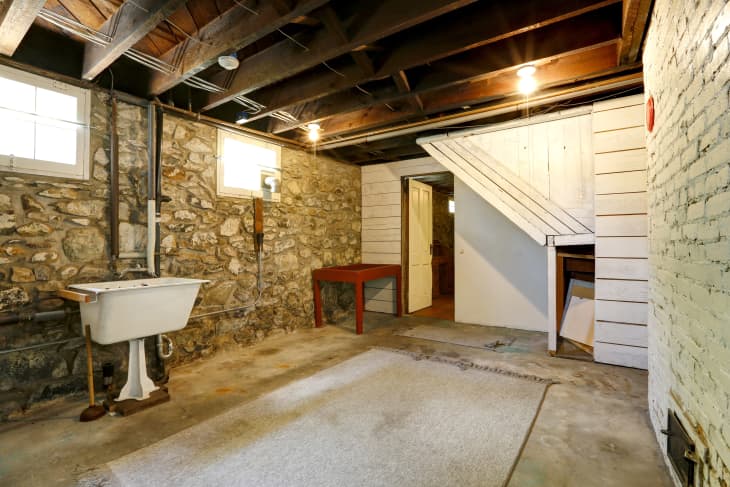6 Things You Should Never Store in Your Basement, According to an Expert

If you’ve ever lived in a house with a basement, you likely already know their biggest problem: flooding.
“The joke in real estate is that there are two types of basements: basements that have flooded and basements that haven’t flooded yet,” says Kate Ziegler, a realtor with Arborview Realty in Boston. “Any house that has a basement is a hole in the ground, and it’s below ground level. There’s always a risk that there could be some water infiltration into your basement, whether that’s humidity and dampness or actual flooding.”
I know this all too well, since I grew up in a house prone to flooding. The amount of keepsakes and childhood treasures I lost because I stored them improperly still hurts a little—but I did learn from it. Basements will flood, and there are some things you don’t want to store down there.
Keepsakes
Don’t repeat my mistakes. Any keepsakes you actually want to keep should be kept out of the basement and ideally placed in an attic or closet where they won’t get damaged. The dampness of basement air alone, even if there’s no flood, will make them deteriorate.
Firewood
Storing wood in the basement doesn’t seem like such a problem on the surface, but if you brought that wood in from outside, all you’re doing is welcoming pests into your home.
“It can be a problem especially if wood was sitting out over the summer,” Ziegler says. “When you bring it indoors, you’re inviting into your house anything that was starting to ingest that wood. You’re making it a little easier for termites or other wood-boring insects to get in and closer to the wood that comprises your house.”
Fuel canisters
Whether they’re empty or full, storing any sort of fuel canister in your basement is just a bad idea. Not only can it start a fire if there are any sparks, it will also accelerate any other fire that might occur in the basement. Plus, fuel can emit noxious fumes into the air, and you don’t want those getting into your house.
Cardboard, papers, or fabric
Damp air in the basement will lead to mildew and mold on soft goods like cardboard, paper, and fabric. Keep them in an attic where it’ll be dryer. If you absolutely must store them downstairs, make sure they’re properly sealed in waterproof containers and lifted off the floor with metal or plastic shelving.
Food
In today’s world, people are storing a lot more extras at home than they used to be—and in addition to paper goods and medical masks, that means food products. But storing food in the basement can attract critters and cause spoilage.
“In our household, we use five gallon buckets with snap-on lids,” Ziegler says. “We store any dry goods inside those buckets so they’re sealed. They’re not going to be subject to water if there is flooding or humidity, and they are protected from attracting rodents or other pests that might also be trying to find your food stores.”
Skis
It might come as a surprise, but if you’ve got winter skis, try storing them upstairs in a closet rather than in the basement. They have a metal edge on them and the moisture downstairs will make them rust.